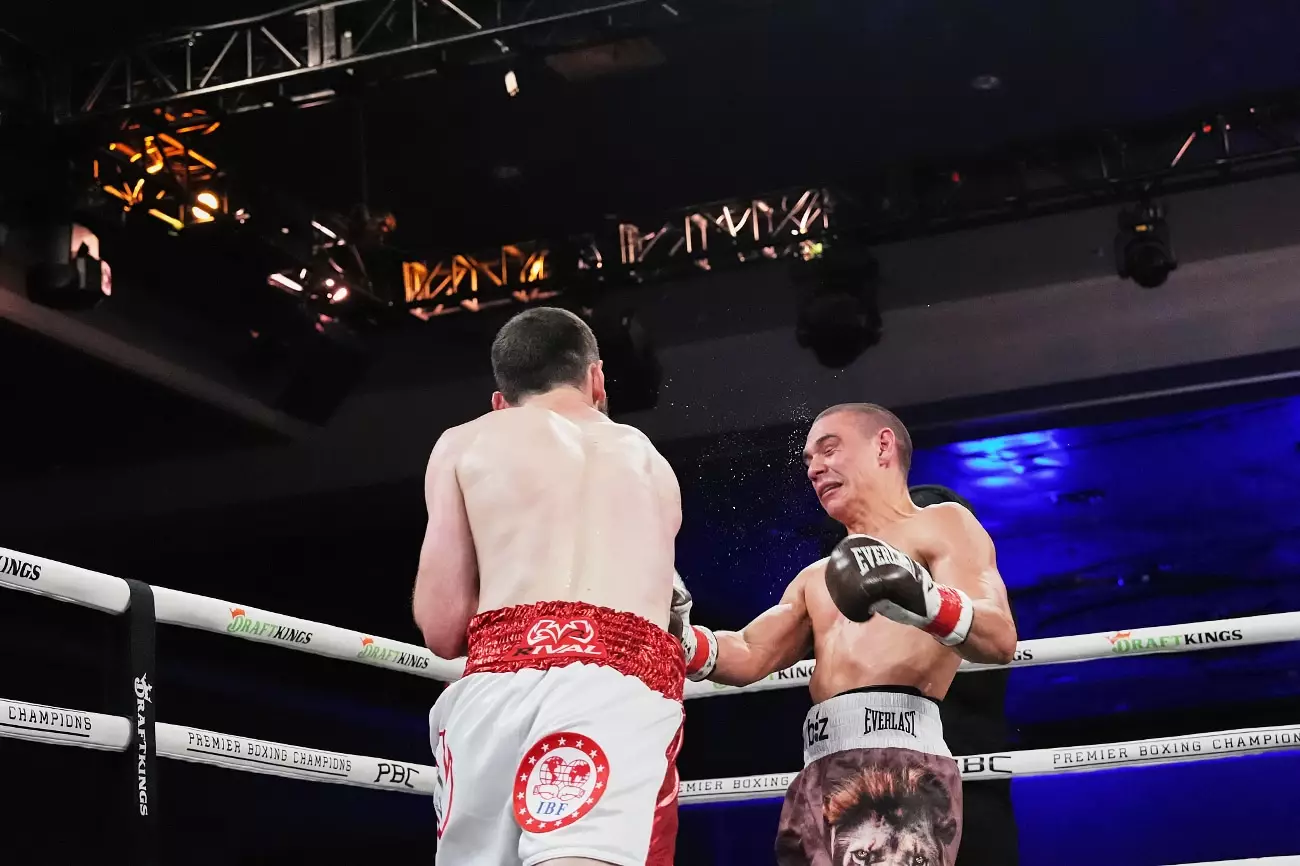The junior middleweight division has long been a crucible for boxing talent, teeming with fighters vying for supremacy. With champions like Terence Crawford and the emerging powerhouse Vergil Ortiz Jr., one would expect an eagerness to challenge the status quo. However, after Bakhram Murtazaliev’s impressive victory over Tim Tszyu, a perplexing silence surrounds his name. Despite his undeniable skills and a glossy record of 23 wins—including 17 knockouts—Murtazaliev seems to have become an unacknowledged figure in future bouts against the division’s elite.
Following his dominant third-round knockout of Tszyu on October 19, one might anticipate a frenzy of interest from the top contenders in the division to face Murtazaliev. Strange as it is, fighters like Ortiz Jr. and Crawford have all but ignored him, opting instead for discussions surrounding other opponents. The irony is stark; Murtazaliev’s efficiency in dismantling Tszyu should have elevated his profile, yet he remains in a limbo where his name is conspicuously absent from the narratives surrounding high-profile matches.
As Ortiz Jr. prepares for a bout on February 22 in Riyadh, speculation about his opponent is rife. Murtazaliev, who delivered an electric performance, ranks as an optimal choice yet has not garnered serious consideration. Instead, upcoming fighters like Xander Zayas and Erislandy Lara were linked to the bout before ultimately, Israil Madrimov was chosen. Interestingly, Madrimov himself faces a challenging contest against Serghii Bohachuk shortly before Ortiz Jr.’s fight, raising speculation: Why isn’t Murtazaliev being positioned as a fallback option?
Murtazaliev’s striking prowess is becoming increasingly recognized within boxing circles. His ability to decisively knock Tszyu down three times in one round has set a precedent that may actually deter elite competition from facing him. Such performances evoke memories of legendary fighters like George Foreman, who struck fear into their opponents through sheer domination. As Murtazaliev continues to achieve victories of this caliber, he risks becoming the proverbial boogeyman in the division, a fighter avoided due to the threat he poses rather than any deficiency on his part.
Murtazaliev stands at a crucial juncture in his career. While the lack of references to him by major contenders is concerning, it also underscores his growing reputation as a formidable fighter that others fear. This dynamic brings forth a pressing question: How will his team strategize moving forward? Will they continue to wait for a chance to fight the top tier or pursue opportunities to force the hand of more renowned opponents? Given how quickly the boxing landscape can change, the time may have come for Murtazaliev to carve a spot for himself among the elite—if only the division’s top dogs would be willing to step into the ring with him.
The current state of the junior middleweight division reveals the paradox of fear and respect that Murtazaliev has inspired. His performances command attention, but, for better or worse, they might also keep challengers at bay. The next chapters in his journey hinge on whether he can entice the marquee fighters to realize the benefits of that risky encounter.

